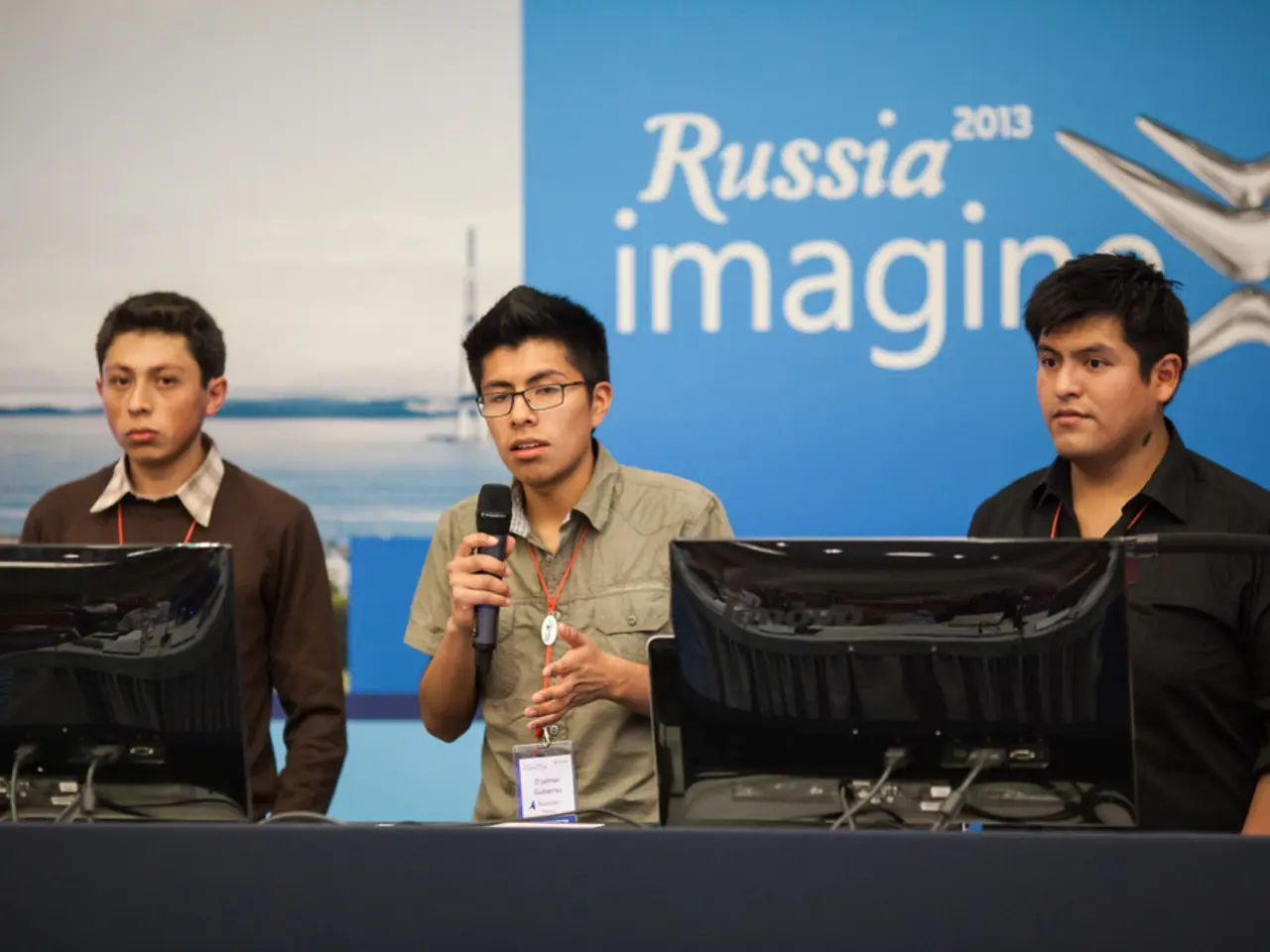AI instruction for Russian school children starts from early grade levels
In a recent proposal, State Duma deputy Yekaterina Kochneva, along with other lawmakers, has put forth a plan to expand school and university curricula to include lessons on artificial intelligence (AI). The initiative was reported by the Parliamentary Newspaper, citing TASS.
The proposed expansion emphasizes the importance of practical AI skills for the digital economy. It aims to create a unified system of online clubs and electives in AI, accessible to students in every educational institution across the country. This system is intended to be integrated into extracurricular activities, starting from primary school, and to be further developed within the vocational education system.
However, the proposal does not specify the age range or level of education for the AI lessons beyond extracurricular activities and vocational education. Moreover, it does not provide details on the content or structure of the AI lessons.
While specific Russian curriculum plans are not yet explicitly outlined, global educational trends offer insights into what Russia's approach might entail. Education systems worldwide are focusing on developing students' foundational skills to engage actively and autonomously with digital technologies, such as self-regulated learning and computational and scientific inquiry practices. These skills support interaction with AI and other emerging technologies in problem-solving contexts.
Moreover, a responsible and intentional integration of AI in education stresses that AI should enhance rather than replace existing curricula. This ensures that AI-generated content aligns with academic standards, supports teachers, and maintains instructional quality.
Examples from other countries show school leadership being introduced to AI technologies to identify student and teacher potentials, supported by specialized curriculum modules tailored for AI integration. Given Russia's emphasis on strengthening professional expertise and adapting to technological advancements within military and professional education spheres, it is plausible that AI education will be integrated with a focus on practical applications and leadership in digital environments.
The deputies outlined their initiative in a letter to Deputy Prime Minister Dmitry Chernyshenko, emphasizing the need to prepare youth for working with new digital tools as early as possible. The need to create the unified system of online clubs and electives in AI was also highlighted in the deputies' letter.
As more details emerge about the proposed AI lessons and their integration into Russian school and university curricula, it will be interesting to observe how this trend unfolds and how it aligns with global educational initiatives.
The proposed plan aims to integrate artificial-intelligence (AI) education into extracurricular activities and vocational education, with a focus on practical skills for the digital economy (technology). Moreover, the unified AI system is expected to be aligned with global educational trends, prioritizing foundational skills for autonomous digital engagement and problem-solving with emerging technologies like AI (education-and-self-development).




